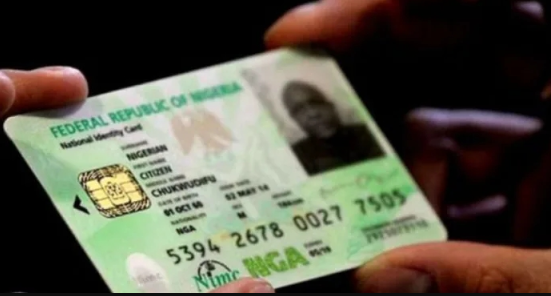A substantial portion of the impoverished and vulnerable population in Nigeria may find themselves excluded from the Federal Government’s cash transfer program. The World Bank has revealed that less than one percent of these individuals possess a National Identity Number (NIN). This revelation, contained in the Implementation Completion and Results Report on the National Social Safety Nets Project, has raised concerns about the reach and effectiveness of the program.
The World Bank’s report, recently made available and reviewed by Infostride News, outlines the target of having 20 percent of individuals registered in the National Social Registry equipped with a valid NIN from the National Identity Management Commission (NIMC) by June 30, 2022. However, as of December 31, 2022, only a mere 0.10 percent of the total impoverished and vulnerable Nigerians on the registry had acquired NIN. This substantial disparity between the target and actual numbers poses a significant challenge to the program’s intended impact.
The report acknowledges the hurdles that have led to this failure to meet the target, stating, “The expansion of the National ID was very slow and beyond the control of the program. NASSP used other means to verify the identity of the beneficiaries collecting the CTs.” Consequently, out of the 9.67 million total beneficiaries of this project, only approximately 9,670 individuals possess NIN. This glaring disparity raises questions about the accessibility and inclusivity of the cash transfer program.

The situation is further exacerbated by recent media reports, which suggest that the Federal Government is considering the expansion of the National Social Register and may disqualify individuals lacking both NIN and Bank Verification Numbers (BVN). This development implies that approximately 9.66 million impoverished and vulnerable citizens may be disqualified from the registry if they fail to obtain their NIN. This raises concerns about the potential consequences of such a decision on those who are already living in vulnerable conditions.
The NIN crisis in Nigeria has been an ongoing issue. While over 100 million Nigerians have successfully linked their NINs with their SIM cards within a span of three years, the process of obtaining NINs has been plagued by delays and reports of extortion, despite the efforts of the NIMC. Furthermore, there have been numerous technical glitches and challenges with the NIN verification portal, particularly in the year 2022.
In response to the escalating challenges related to NIN and passport clearance, the Federal Government made the decision to transfer the NIMC from the Ministry of Communications, Innovation, and Digital Economy to the Ministry of Interior. This move was aimed at streamlining and improving the processes involved in acquiring NINs and addressing the associated bottlenecks.
While the NIMC recently introduced a self-service solution that allows Nigerians to conveniently enroll for their NIN using their smartphones, this solution has not yet been fully implemented. This delay has further hindered the goal of ensuring that a significant percentage of the impoverished and vulnerable population obtains their NINs.
To gain more insight into the background of these developments, it’s essential to trace back to 2016 when the Federal Government of Nigeria and the World Bank collaborated to establish the National Social Safety Nets Coordinating Office (NASSCO). This collaboration aimed to enhance Nigeria’s social safety nets and social protection system with the objective of eradicating severe poverty and expanding opportunities for all citizens.
NASSCO, the agency responsible for overseeing the National Social Safety Net Programme, reports to the Federal Ministry of Humanitarian Affairs, Disaster Management, and Social Development. The World Bank provided a credit of $500 million to support the social safety net program, which was initially intended to conclude by June 2022 but was later extended to December 2022 due to payment delays. Furthermore, the World Bank approved an additional $800 million to scale up the program, extending its duration until 2024. This program is considered one of the fuel subsidy palliatives under the current administration’s initiatives.
In a recent move aimed at addressing poverty and its implications, President Bola Tinubu inaugurated the disbursement of N25,000 to 15 million households for a period of three months as a social safety net initiative. This initiative was introduced in honor of the 2023 International Day for the Eradication of Poverty and is intended to provide financial relief to vulnerable households. However, the eligibility criteria, particularly the requirement for NIN, might further exclude a significant portion of the target population.
In conclusion, the low percentage of impoverished and vulnerable Nigerians possessing NINs presents a significant challenge to the Federal Government’s cash transfer program. With less than one percent of the target population having NINs, the effectiveness and inclusivity of the program are in question. The NIN crisis, characterized by delays and technical issues, has further complicated the situation. The potential disqualification of individuals without NIN from the expanded National Social Register raises concerns about the welfare of millions of vulnerable citizens. It is imperative that the government and relevant authorities address these challenges and ensure that the cash transfer program reaches those who need it most.
Support InfoStride News' Credible Journalism: Only credible journalism can guarantee a fair, accountable and transparent society, including democracy and government. It involves a lot of efforts and money. We need your support. Click here to Donate
